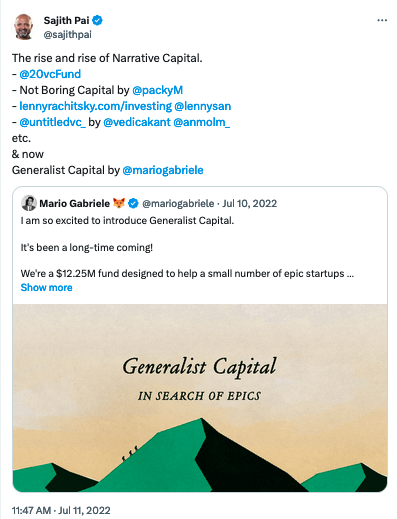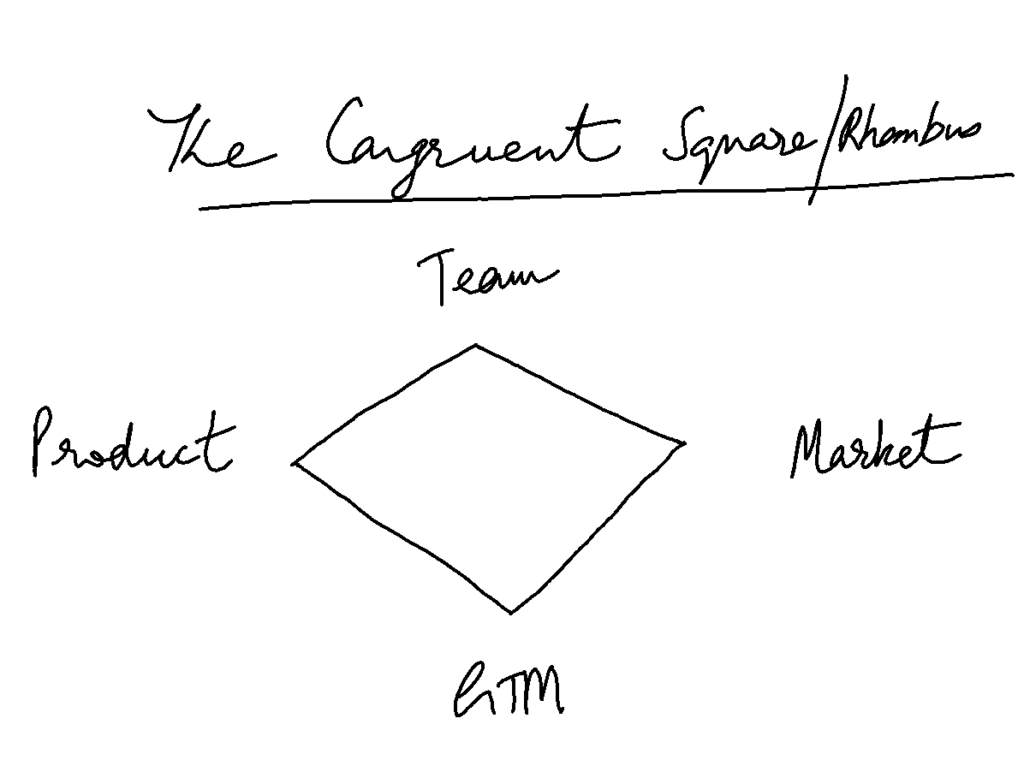Here is interview #2 that I did as part of research for my book on Product Market Fit. This one is with Anshuman Bapna, now founder of ClimateTech startup Terra, and erstwhile Mygola (acquired by MakeMyTrip). I reached out to Anshuman on seeing a tweet by him describing his failed pitch to Joe Gebbia, Airbnb’s founder. Having seen this and his previous tweets, I thought what he had to say …
Sajith Pai
Posts by Sajith Pai:
PMF Convo #1 – Chaitanya R, Wakefit
I am presently writing a book on product-market fit or PMF, a seminal concept in the startup world. It is a topic I have been obsessed with for a while now, given that a large part of my success rests on helping my portfolio achieve PMF. In that regard, the lack of a practical guidebook / playbook for early-stage founders on this topic has always puzzled me. In fact, for …
All The Writing Done Thus Far In 2022
I have been writing and publishing, though much more infrequently than I did previously. However, I haven’t been updating this website with links or content from those. I notice my last published piece here was from late last year. Sigh. Still, those of you who follow me on Twitter or LinkedIn, or subscribe to my newsletter would have seen or read some or most of those pieces. For the sake …
The Revenue Equation, KPIs, and Controllable Input Metrics
This is a piece I have been meaning to write for a few months. It sets out the concept of a Revenue Equation, how that can be used to determine your KPIs / metrics, and how to derive the Controllable Input Metric (CIM) which is the most important metric to focus on. I also share how to set incentives to drive desirable behaviour re the metric. Lots of examples and …
Narrative Capital
A fan reached out to me after a recent tweet of mine (below), asking for a ’smol essay’ on what I meant by the term ‘narrative capital’ and what it means for the future of funding. Here goes.
First, the tweet

Narrative Capital is my term for a trend that has accelerated lately in venture capital; one where writers / podcasters / media creators purveying tech and startup content have …
Unbundling Religion
“There are two ways to make money in business: You can unbundle, or you can bundle.” – Jim Barksdale, cofounder of Netscape
Unbundling / (re)bundling is a powerful framework to rethink any topic or entity from first principles. It also helps us visualize what opportunities could be unlocked.
I have explored bundling / unbundling of human creation previously suggesting possible opportunities. In this essay, I will explore how unbundling / …
Native Ecommerce Models
Thinking that there are native models for each ecommerce category.
Let us start w this useful framework (via Niraj Shah of Wayfair from his podcast on Colossus).
Amazon cracked #1 through marketplace. This is the native model for internet ecommerce, but in reality it is the native model for a certain kind of good. One that fits into cartons and can be loaded into vans. See Benedict Evans’ clever …
Tokeni$eMe
(This is a fictional news report. Nothing mentioned here happened. There are some real names here, but none of them said or did what is reported. Think of it as a fictional ‘postcard’ or news report from the future.)
Tokeni$eMe, a ‘controversial’ people funding play, becomes fastest-growing ‘decacorn’ after Tiger-led ‘round’.
10th December ‘23 / techcrunch.com / Sarah Hegarty
Danny Chu, Asawari Kini and Noam Levine founded DAO Tokeni$eMe to …
Shower Thoughts
A frequent conversation topic that comes up with founders is that of individual employee performance. Once a company nears Series A, team size crosses 30 — I haven’t heard of too many Indian companies with low team counts (this is a topic for another post!) – and invariably the founder’s attention is drawn to managing employee performance or the impact of this. Almost every month or two, someone is being …
The Congruent Square
Of late, I have been thinking of a concept I call the Congruent Square (or Rhombus for the math-purist) to better explain to founders why some of them are struggling with hitting product market fit (PMF).

Defining the Congruent Square
Congruent Square says there has be a broad alignment / congruency in the product you are taking to market, the team that is taking it there, the consumers / market …
